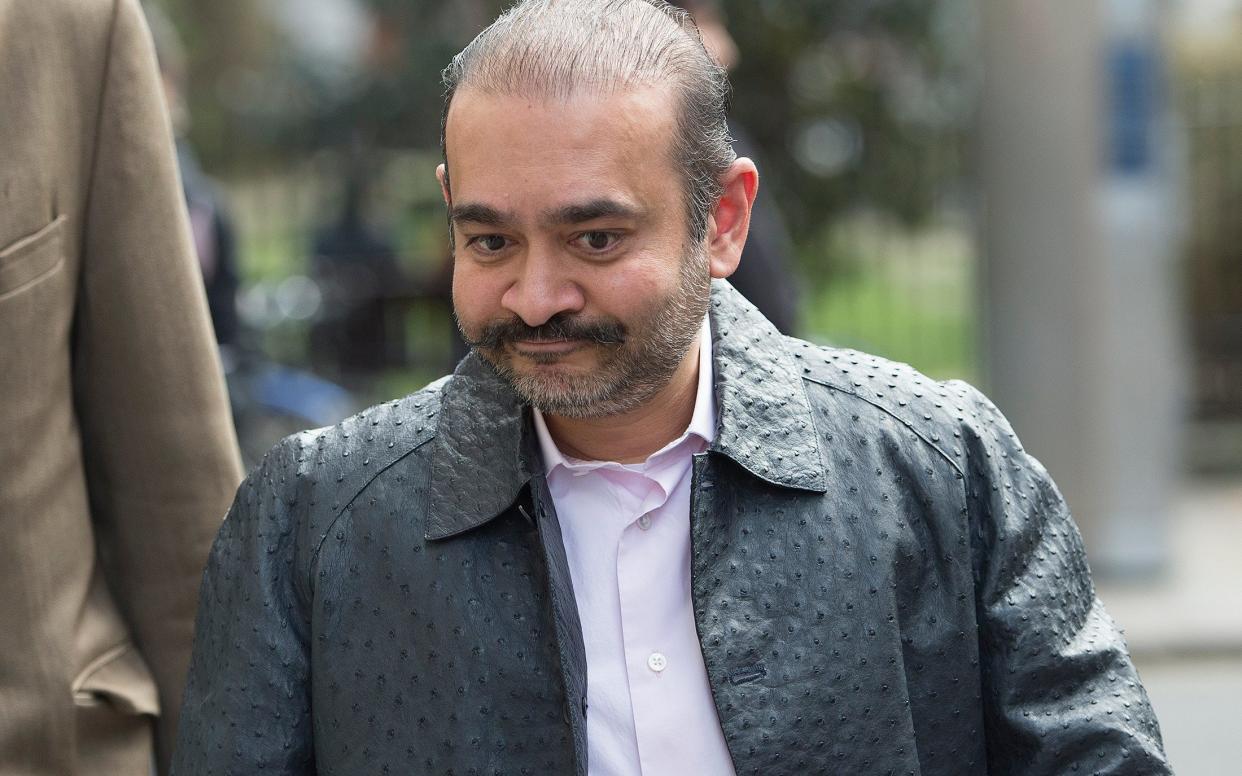India's most wanted man Nirav Modi stole vast sums of money by claiming he was buying pearls, court hears

India's most wanted man, who was tracked down by the Telegraph to a London flat, stole "eye watering" sums of money by claiming they were needed to buy a consignment of pearls, a court heard.
Nirav Modi, 49, fled the country while suspected of perpetrating a £1.5 billion bank fraud, the largest in Indian history, on the state-run Punjab National Bank (PNB).
The billionaire diamond dealer was arrested in March last year after the Telegraph traced him to an address occupying half a floor in Centre Point tower, where rent is estimated to cost £17,000-a-month, and to an office around the corner in Soho Square.
An extradition hearing at Westminster Magistrates Court heard Modi was able to swindle £1.5 billion from the bank by using insiders and threatening to kill witnesses in an international "Ponzi scheme".
Modi also allegedly glued low-grade diamonds onto jewellery so they could be repackaged and sold at a higher price to con lenders, the court heard.
Modi has previously protested his innocence through lawyers in court hearings in India.
Currently residing at HMP Wandsworth, the 49-year-old appeared via video-link wearing a white shirt and black suit at the first of five scheduled hearings which will decide whether he is to be extradited to India.
Helen Malcolm QC, for the Indian government, said the fraud had been orchestrated by fiddling MOUs (memorandums of understanding) - a loan used by businesses to import foreign goods at a cheaper rate.
Modi allegedly persuaded corrupt workers within the PNB to sign off MOUs under the pretence that they were being used to pay off exporters on a consignment of pearls from Hong Kong, the court heard.
But the "eye-watering" sums of money were instead distributed across other businesses in the Modi empire to pay off a backlog of earlier debt in a "Ponzi scheme of borrowing," it was said.
The magnate then used several "dummy" directors as figureheads to distance himself on paperwork from the companies involved while maintaining control.
Ms Malcolm said the PNB caught wind of the scheme in 2018. The court heard Modi and his brother "set out on a campaign to frighten witnesses" when the fraud was discovered.
One witness was said to be "threatened with death and implication in a theft", while mobile phones belonging to a number of people were allegedly destroyed in order to get rid of evidence.
The extradition hearing continues.

